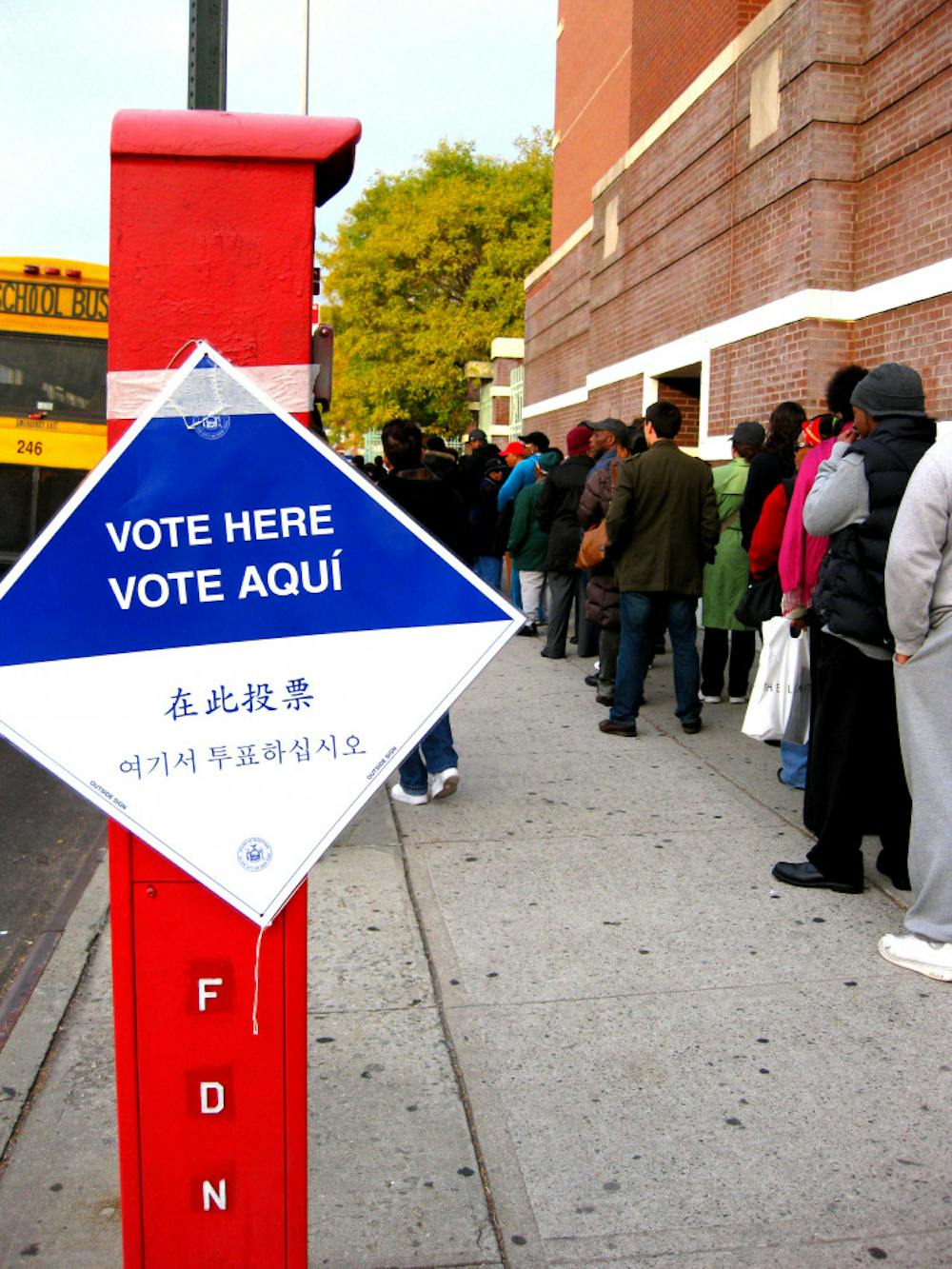The New Jersey race appears to be a shoo-in for Democratic candidate Phil Murphy, as he has consistently polled well above his opponent, current Lt. Governor Kim Guadagno. This comes as no surprise as the state tends to lean heavily Democratic and current New Jersey Gov. Chris Christie, a Republican, is coming off an incredibly unpopular second term. Virginia is, however, far more interesting. This state only allows a governor to serve one four-year term, so the relatively popular incumbent Democratic governor, Terry McAuliffe, is ineligible to run for reelection. In Virginia’s neck-and-neck contest, the current Lt. Governor Ralph Northam is facing the establishment Republican candidate and former chair of the Republican National Committee Ed Gillespie. Gillespie’s campaign is notable, for he continues to use Trumpian tactics of race-baiting to rile up support. As such, today’s election isn’t just important for the state of Virginia, a microcosm of the United States — its outcome will influence how candidates handle the issue of race in the consequential 2018 midterm elections.
Ever since his victory in the primary, Gillespie has been on the offensive about immigration and crime. In a series of advertisements, the Republican candidate has highlighted the threat posed by felons who now have the right to vote — a reference to McAuliffe’s 2016 decision to restore voting rights to citizens with past felony convictions. In addition, Gillespie has been highly critical of Northam for opting not to ban sanctuary cities in Virginia, calling this a significant step toward a lawless commonwealth.
Gillespie’s campaign is deliberately trying to mimic the language of President Trump and emulate his inflammatory law and order rhetoric. This tactic comes as a surprise because, by all measures, Gillespie is the definition of an establishment candidate. The former RNC chairman and counsel to former President George W. Bush ran a traditional — but unsuccessful — Republican campaign for the Senate in 2014, promising to lower taxes and repeal Obamacare. His extensive history serving the Republican Party suggested that he would tout the “traditional” party line and message. But this election is different. Now even the Republican establishment is using Trump’s dangerous race-baiting tactics. By constantly talking about the non-existent threats of sanctuary cities and using racially charged depictions of immigrants in TV ads, Gillespie’s campaign represents a dangerous trend in American politics: Race has become nothing more than a political weapon to scare voters to the polls. This tactic inspires support without any solid evidence or policy behind it, and fits solidly within the Trump brand of the Republican Party. Sadly, it has infiltrated the establishment and may be here to stay.
The issue of race has gotten so heated and controversial in the Virginian election that it has compromised the judgement of advocates on both sides of the aisle. For example, a group supporting Northam released an advertisement in which children of color are seen running away from a truck outfitted with a Confederate flag and a Gillespie bumper sticker on the back. Gillespie called this advertisement — which critics allege glamorizes and exploits the plight of minorities — detestable. The Latino Victory Fund PAC, sponsor of the ad, retracted it from the air, but refused to back down on its message. Northam has said that his campaign did not have anything to do with the advertisement, and though it is fair to say that Northam’s campaign isn’t as provocative as Gillespie’s, he has yet to denounce the advertisement.
This attempt on the part of progressives to co-opt the eye-catching and deliberately inflammatory tactics of Gillespie and use them against him has clearly backfired. From this episode, it has become clear that Democrats need to find a rebuttal to Republicans’ race-baiting that does not also depend on harmful tropes and stereotypes. As establishment Republicans move to embrace Trumpian tactics, Democrats across the country must find a way to neutralize the attention-grabbing appeal of populist rhetoric. At the same time, moderate Republicans should stand by their principles and run on the issues that matter to their constituents — not flashy, but ultimately empty, promises.
Regardless of who wins the election today, the ability of Gillespie to bring what many thought would be a relatively easy race for Northam into such a tight contest means that his Trumpian strategy may become a fixture of American politics. Even as Trump continues to endure low approval ratings, his style of campaigning and racialized rhetoric seem to remain a successful tactic for Republicans. To beat this trend, Democrats need to think of new strategies, because, if Virginia’s election is any indication, they currently do not have a good answer. Either way, as Virginians go to the polls today, they must ask themselves whether we as a country ought to embrace this terrible perversion of race relations or if we want to send a strong message that we will not stand for politicians who stoke divisions between us. I hope they make the right decision.
Bryce Campanelli ’18 can be reached at bryce_campanelli@brown.edu. Please send responses to this opinion to letters@browndailyherald.com and other op-eds to opinions@browndailyherald.com.



